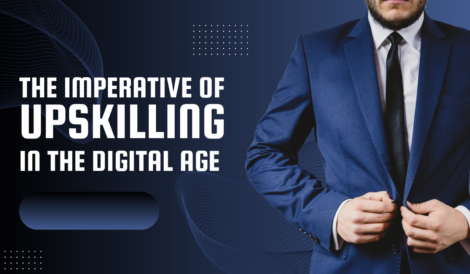The rise of Generative AI is more than just a technological advancement—it’s a transformative force that is reshaping the landscape of business operations and fueling innovation across industries. From creating personalized customer experiences to optimizing internal workflows, generative AI is unlocking new possibilities that were once only imagined. By harnessing the power of AI models capable of generating text, images, code, and more, businesses are poised to operate smarter, faster, and more creatively than ever before.
Let’s explore how generative AI is revolutionizing business operations and driving innovation across the globe.
1. Streamlining Business Operations with AI-Powered Automation
One of the most immediate impacts of generative AI in business is the automation of routine tasks. From generating reports and drafting emails to creating marketing content and analyzing data, AI is streamlining time-consuming activities, freeing up employees to focus on higher-value work. This is especially evident in customer service, where AI-driven chatbots can handle inquiries round-the-clock, responding to frequently asked questions and solving basic problems without human intervention.
In industries like finance, AI is automating tasks like transaction processing, risk assessment, and fraud detection. By analyzing historical data and generating predictive models, generative AI can help identify potential risks and suggest actionable insights, making operations more efficient and reducing human error.
2. Enhancing Creativity and Product Development
Generative AI isn’t just about saving time—it’s also about sparking creativity. In fields like design, entertainment, and marketing, AI is being used to create innovative solutions and products that push the boundaries of what was previously possible. For example, fashion designers are leveraging AI to create new clothing patterns or analyze trends, while architects are using AI to generate building designs that optimize space and sustainability.
In the tech industry, AI models are helping to generate code, build prototypes, and even debug software, which speeds up the development process. With AI handling the technical aspects of product development, human teams are empowered to focus more on creativity, resulting in products that are not only efficient but also fresh and innovative.
3. Driving Personalized Customer Experiences
Personalization is a critical factor in today’s competitive business environment, and generative AI is playing a major role in delivering tailored experiences. By analyzing vast amounts of customer data, AI can generate personalized content, product recommendations, and marketing messages that resonate with individual customers.
For instance, in the retail sector, AI-driven platforms use browsing and purchase history to suggest products that align with a customer’s preferences. Similarly, in media and entertainment, generative AI is used to recommend movies, TV shows, or music based on previous consumption patterns. By making interactions more relevant and personalized, businesses can increase customer engagement, loyalty, and ultimately, sales.
4. Transforming Marketing and Content Creation
Generative AI is transforming the way businesses approach marketing by enabling the rapid creation of high-quality content. Whether it’s blog posts, social media updates, advertisements, or video scripts, AI-powered tools can generate content that matches a brand’s voice and style while optimizing for SEO, audience engagement, and brand messaging.
Marketing teams are now using generative AI to produce multiple variations of ad copy, test different visuals, and even create interactive customer experiences—all without the need for large content teams. This not only speeds up the content creation process but also ensures that businesses can experiment with different strategies to see what resonates most with their target audience.
5. Improving Decision-Making with Data-Driven Insights
In a world where data is king, generative AI provides businesses with the tools to analyze and act on data faster and more effectively. By processing large datasets, AI can generate insights that would take humans much longer to uncover. For example, businesses are using generative AI to forecast demand, predict market trends, and model different business scenarios, which helps leaders make better-informed decisions.
In fields like marketing and sales, AI can generate predictive models to forecast customer behavior, identify patterns in purchase history, and optimize pricing strategies. This allows businesses to stay agile and proactive, responding to market changes with data-backed strategies that drive success.
6. Optimizing Supply Chain and Logistics
Supply chain management is a crucial area where generative AI is delivering significant improvements. By analyzing historical data, market conditions, and global events, AI can help businesses optimize inventory levels, forecast demand, and plan production schedules more efficiently. This reduces waste, minimizes supply chain disruptions, and improves overall cost-effectiveness.
Generative AI also plays a role in logistics by optimizing delivery routes, predicting delays, and automating warehouse operations. For example, AI systems can generate more efficient ways to manage warehouses by optimizing storage layouts or automating restocking processes, making supply chain operations smoother and more responsive.
7. Fostering a Culture of Innovation
Perhaps one of the most exciting aspects of generative AI is its ability to foster a culture of innovation within businesses. By automating routine tasks and accelerating product development, AI allows companies to dedicate more time and resources to innovation. Employees are no longer bogged down by repetitive tasks but are empowered to explore new ideas, experiment with new solutions, and bring fresh concepts to life.
Additionally, generative AI is being used in brainstorming sessions and idea generation processes. For example, businesses in the entertainment and advertising sectors are using AI to generate creative concepts, advertisements, and storylines, helping human creatives push the boundaries of their work and stay ahead of the competition.
8. Redefining Competitive Advantage
In today’s fast-paced business world, having a competitive edge is essential, and generative AI is helping companies stay ahead of the curve. Those that embrace AI technology are gaining significant advantages in terms of speed, cost-efficiency, and adaptability. By leveraging AI to optimize their operations and innovate faster, businesses can differentiate themselves from their competitors and create more value for their customers.
As generative AI becomes more advanced, it will enable even more transformative changes in industries ranging from healthcare to entertainment, finance to retail. The companies that adopt and integrate these technologies into their operations early will be the ones that set new standards and lead their industries.
Conclusion: The Future is AI-Driven
Generative AI is no longer just a futuristic concept—it’s a reality that’s rapidly transforming the way businesses operate and innovate. From automating processes and enhancing creativity to providing personalized experiences and improving decision-making, AI is revolutionizing industries across the globe. Businesses that embrace generative AI will have the tools to streamline operations, drive innovation, and gain a competitive edge in the marketplace.
As AI technology continues to evolve, the possibilities are limitless. For companies, the key to success lies in understanding how to effectively integrate AI into their operations and workflows while maintaining a focus on human creativity, ethics, and customer-centricity. Those that can strike the right balance will be well-positioned to thrive in an increasingly AI-driven world.
Related Posts
Top Trends Data Analysts Should Look Out For in 2024
- November 30, 2023
Proactive Analytics
- November 1, 2023
The Imperative of Upskilling in the Digital Age
- April 29, 2024



